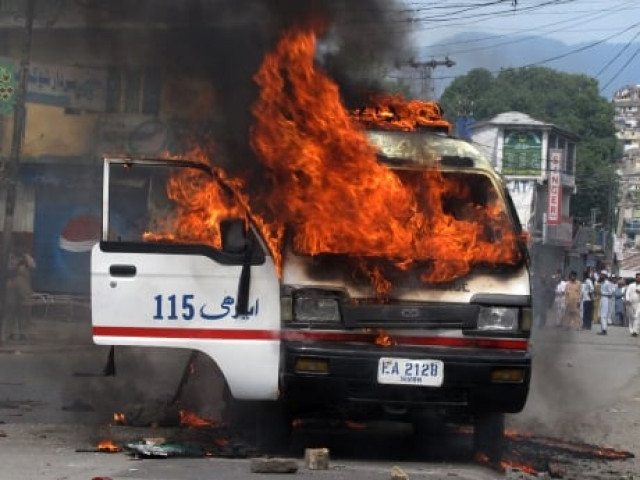There are different social, cultural and ethnic groups in Pakistan. These ethnic groups aren’t led by a tribal chieftain or an elder. In the 21st century the urbanity of ethnically associated people has evolved. The geriatric level of living has been abandoned. People don’t believe in tribal chieftains leading their ethnic group but a political leader instead. There are various ethnic groups in Pakistan, consequently there are various political groups representing them. By and large, every ethnic group claims to hold a hapless history pertinent to the recent past. Political leaders, each representing their ethnicity, are good at making their people learn, as well as reminding then continuously, about the prejudices that ethnicity has faced since partition. Hence, demagoguery politics has come into existence in the political culture of Pakistan.
This demagoguery politics has a vital role to play in the regression of Pakistan. A huge faction of people in Pakistan is effectively and customarily convoluted in the macho-paranoia of ethnic politics. Each province asserts that its due rights have not been granted to it and accuses another province of embezzlement – and keeps creating havoc within the nation. Target killings, the missing persons, the separatist movements, controversy regarding construction of dam, the water share, the quota system – all share a common thread that routinely subverts the nation. The source of such chaos is as often as not connected to the same source - ethnic conflict.
A major fragment of society is excessively preoccupied with ethnicity. Unity amongst the people of Pakistan is dismantled, and the sad part is that the people do not seem to care much. The blind obedience served to respective ethnic political parties has become so strong that some political activists would prefer to slay an opponent who refuses to accept his affiliated ethnic group or rather the political party’s manifesto. In many cases a horde of political activists belonging to certain political parties will not tolerate criticism aimed towards their party’s leader. This cult continues and remains – partially – behind the curtain for the people. This is the picture of an ethnic and divided Pakistan we see today.
We are stuck in the deep marshes of ethnic and provincial differences. The people of Pakistan – from the shores of Arabian sea to the Himalayan Range – should understand that united we can contribute to bringing a positive change in Pakistan. The problem is within ourselves. We are divided within our own country so that external enemies with the policy of divide et impera do not need to employ any special exertion with a purpose to obstruct Pakistan the access to progression.
In a speech in Dhaka, Quaid-e-Azam addressed 300,000 people on March 21, 1948, he said:
“Now I ask you to get rid of this provincialism, because as long as you allow this poison to remain in the body politic of Pakistan, believe me, you will never be a strong nation, and you will never be able to achieve what I wish we could achieve.”
There was no grand concept of provincialism at the time of Jinnah, yet the great leader knew the ethnic problem along with provincialism could hamper Pakistan in the days to come. Such was the vision and safety margin of Jinnah about the future politics of Pakistan that he cautioned to avert from provincialism.
Today, if Pakistan has not progressed the reason is because of these issues remain ignored by us. Perhaps we consider these issues infinitesimal, but they still deserve our attention in order to bring Pakistan to the height of glories as Quaid-e-Azam dreamt.



COMMENTS
Comments are moderated and generally will be posted if they are on-topic and not abusive.
For more information, please see our Comments FAQ